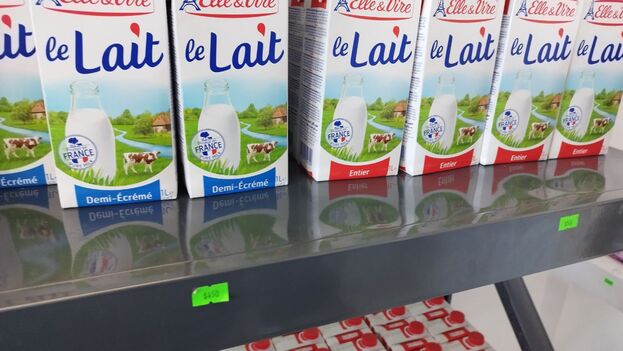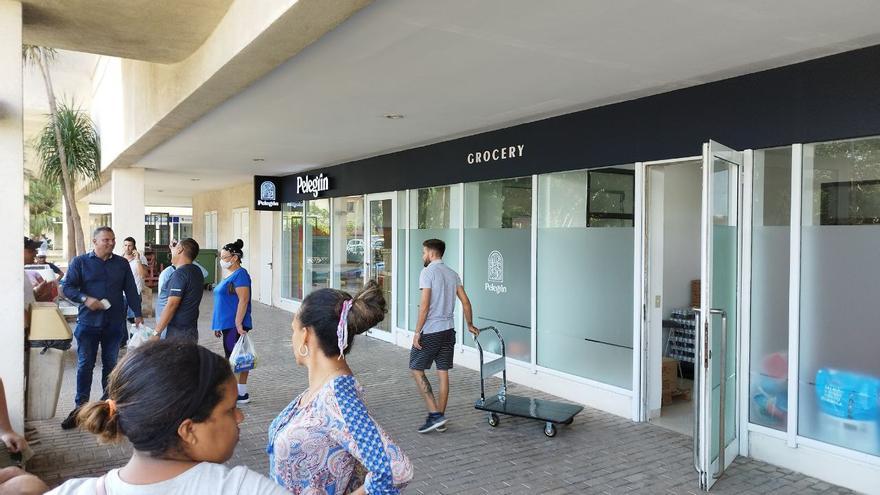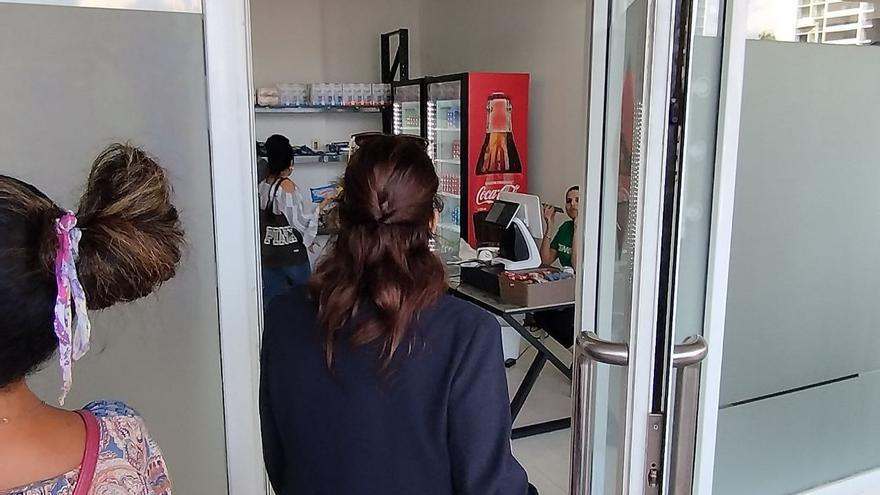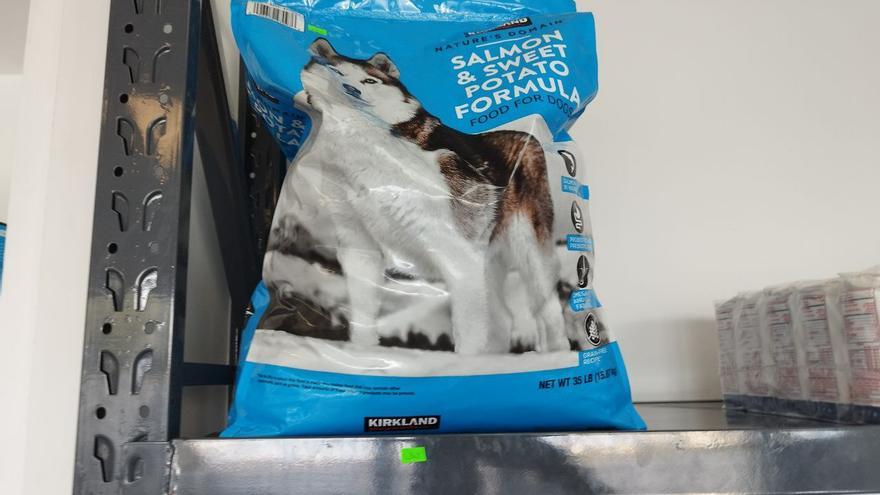
![]() 14ymedio, Juan Diego Rodríguez, Havana, 6 February 2023 — On the facade the English word “Grocery” is printed, and the line extends to the area outside the small private market recently opened on the ground floor of the Miramar Trade Center in Havana. Among airline offices, foreign companies and bank branches, the Pelegrin store, managed by a small business, had more curious than potential customers this Monday.
14ymedio, Juan Diego Rodríguez, Havana, 6 February 2023 — On the facade the English word “Grocery” is printed, and the line extends to the area outside the small private market recently opened on the ground floor of the Miramar Trade Center in Havana. Among airline offices, foreign companies and bank branches, the Pelegrin store, managed by a small business, had more curious than potential customers this Monday.
“And that milk? How much is it?” a woman asked a young man who left the premises with two packages of the product that carried a seal with the colors of the French flag and the clarification “Whole.” The answer of “500 pesos each” was enough for a murmur of indignation to run through the crowd. Despite the high price, no one moved from the line until they were able to access the market.
“I found out because I read on the internet that this store had opened,” a woman who bought some sweet vanilla cookies explained to 14ymedio. “They told me that it was only an assortment but it’s not that bad. There is more than in state stores in Cuban pesos, but it’s not a wonder either. I think they’ve made a mistake with the zeros on the right,” she said about the prices.

Small private companies engaged in the sale of imported food have been noticed in recent months in Cuba with goods that they bring from countries in the region, such as Panama, Colombia, Mexico and the Dominican Republic. Given the low productivity of the national industry, beer, malt, soft drinks and sweets with foreign brands cross the path of private trade.
The phenomenon has not escaped the popular humor that has already reinterpreted the acronyms that make up micro, small and medium-sized enterprises [mipyme (or SMEs)] with the acronym of import markets at high prices manicheados [managed] by the State. So far, the new form of management, which is presented in the official discourse as the key to getting out of the crisis, seems to be more for resale than for production of goods.
Hence, no one seemed surprised this Monday in Pelegrin that the 10-ounce packages of soda cookies cost 335 pesos. The price did not cause a great fuss because “the self-employed businesses are more expensive,” said a man who calculated that each one contains 15 sachets with three cookies inside, at “22 pesos per package and 7 per cookie.”

The store has a small area to serve customers, but behind the windows you can see a large warehouse where they accumulate the merchandise they sell. “The cafeteria on the ground floor of my house in Centro Habana is better stocked but it’s true that it is a little cheaper here, but getting to this place costs the difference,” stressed a man who was “by chance” at the Miramar Trade Center looking for a plane ticket to Panama.
Among Pelegrin’s most expensive products, a 35-pound bag of dry dog food stands out, a mixture of salmon and potato, for a whopping 20,600 pesos. The product, of the Kirkland brand marketed by the international chain of Costco supermarkets, has the “Made in USA” letterhead. It has been imported to a country where official stores, specialized in the sector, have not sold pet food for more than a year.
This morning, the Siberian husky printed on the package seemed to look with some arrogance at the customers who let their jaws drop in front of the market counter when they heard the price, more than three times what it costs in the stores of the American chain, if calculated at the official rate of the dollar exchange in Cuba. “This is animalistic, for sure,” concluded an old woman.
“My dog doesn’t look like that, and I’m not going to spend half a year’s salary buying that food for him. Mine will keep eating leftovers and whatever else appears,” said another customer who, in the end, only bought a can of imported Coca Cola for 155 pesos. “I think they put ’Grocery’ outside so that people won’t confuse it with a state store,” he added before leaving the premises.

Among Pelegrin’s most expensive products, a 35-pound sack of dry dog food stands out, a mixture of salmon and potato, for a whopping 20,600 pesos. (14ymedio)The use of the word in English, instead of its Hispanic variants of “food store” or “ration store” is not accidental. Both Spanish terms are marked on the Island by the negative shadow that more than 60 years of rationed markets and centralism have projected on trade. The foreign term could seek to move away from the known and evoke another type of more assorted and efficient bazaar.
But whatever it is called and in whatever language, Pelegrin has prices that are triple that of a box of milk in Madrid or of pet food in Miami. Like other stores managed by SMEs, it seems to be oriented to a social class with enough money to spend 180 pesos on a tiny glass container of yogurt, the daily salary of an engineer.
Translated by Regina Anavy
____________
COLLABORATE WITH OUR WORK: The 14ymedio team is committed to practicing serious journalism that reflects Cuba’s reality in all its depth. Thank you for joining us on this long journey. We invite you to continue supporting us by becoming a member of 14ymedio now. Together we can continue transforming journalism in Cuba.
